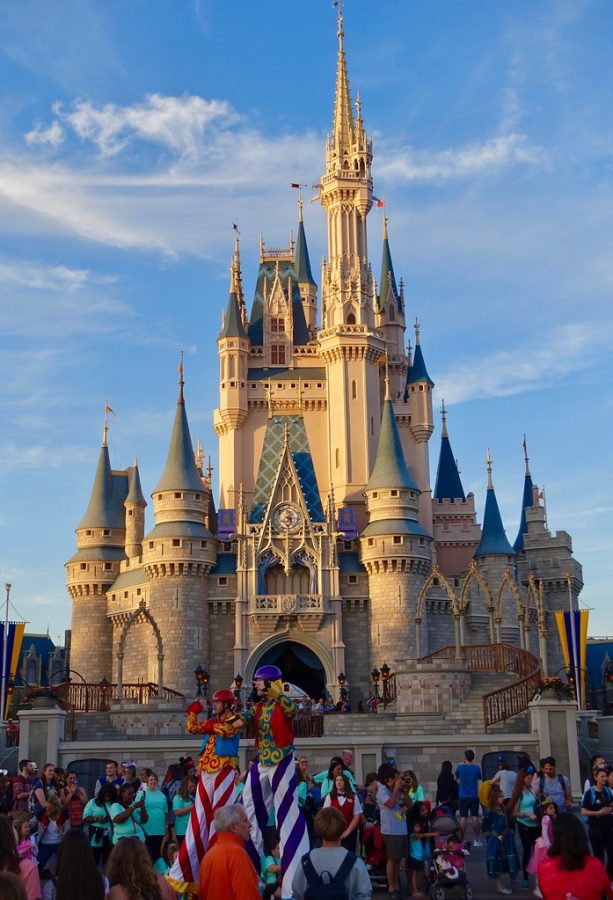Opinion | Disney uses nostalgia as an industry
Photo Courtesy of Steve Jurvetson
Cinderella’s Castle stands tall at Disney World. Columnist Tommy draws attention to Disney’s money-making strategies and urges viewers to recognize its cheapness.
Dec 2, 2019
Disney has bred a business so domineering it would make Standard Oil blush. Let me walk you through some facts: the conglomerate’s stock has grown 40% since August 2016. It now owns eight out of the 10 highest-grossing movies of all time, and it hogged nearly 40% of the box office for the first nine months of 2019.
Disney is putting up gargantuan numbers outside of the studio as well. Its network of parks raked in a $4.5 billion profit in 2018, and that’s before a highly anticipated Star Wars-themed section popped up at Disneyland.
The nearly instant success of Disney Plus, the company’s very own streaming service, can only bolster Disney’s revenues. Barely a week old, it is an ad-free compilation of every show and movie that the entertainment provider has ever released. The platform is, in the most literal sense, an overnight success: 10 million viewers subscribed on the first day.
How are these kinds of profits sustainable when I can’t even sell one cup of hot chocolate on the Main Quad? When will Disney slip up? How much longer can it manage to grow money on trees?
It’s pretty straightforward: Disney will last for as long as we like to reminisce about the stories from our childhood. Until then, the company has one game plan, and we’re playing right into it.
Get The Daily Illini in your inbox!
Disney is often regarded as an innovator in the realm of business. It is continually redefining the limits of how much a single entity can own, how much it can make and how many viewers it can apprehend.
It’s funny, then, how a company can revolutionize the world of entertainment by simply acknowledging what its audience liked when they were kids. The money is the only thing that’s new. We know the content like the back of our hand.
At a glance, Disney’s track record this past year could’ve been ripped from the ‘90s. Live-action remakes of beloved cartoons such as “Dumbo,” “Aladdin” and “The Lion King” weren’t movies as much as they were echoes. How is it, then, that they managed to break such massive economic ground despite their resemblance to the originals? Because people really wanted to see Simba in CGI.
Personally, I saved the ticket money, stuck with the trailer and verified for myself that a realistically rendered Simba looks lion-shaped. It was the same experience for free.
Nevertheless, Disney won’t let you escape the past. When I said Disney Plus has everything the company ever came out with, I meant everything. “Toy Story.” “Pirates of the Caribbean.” “Black Panther.” I genuinely believe that some of these movies are the finest in history, including “WALL-E” and “Finding Nemo.”
Disney doesn’t really understand why I love those films, though. They have simply regurgitated every work in their archives in the hope that some people will pay additional money on top of what they paid in the theater way back when.
Disney has every right to make a profit in every way it can. They are not a monopoly (yet), and every dollar it makes is one that a customer willingly gave up. This business model, however, is doing more for the past than for the future. When we cycle through all of our favorite films and programs of yesteryear, we’ll resurface only to find that the push for new narratives has become less ambitious and less exciting in Disney’s wake.
So … thanks Disney? I guess?
Tommy is a senior in Engineering.






